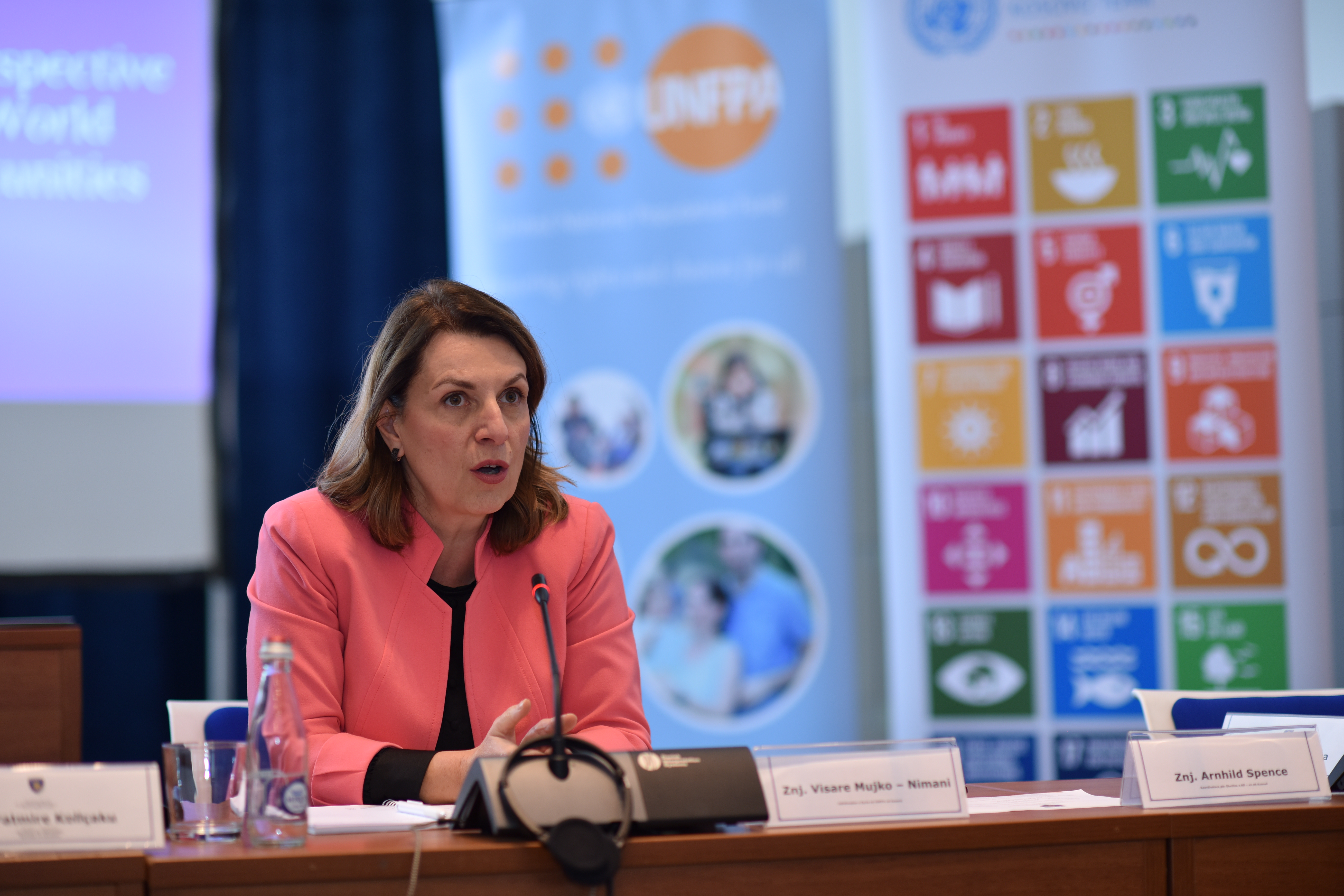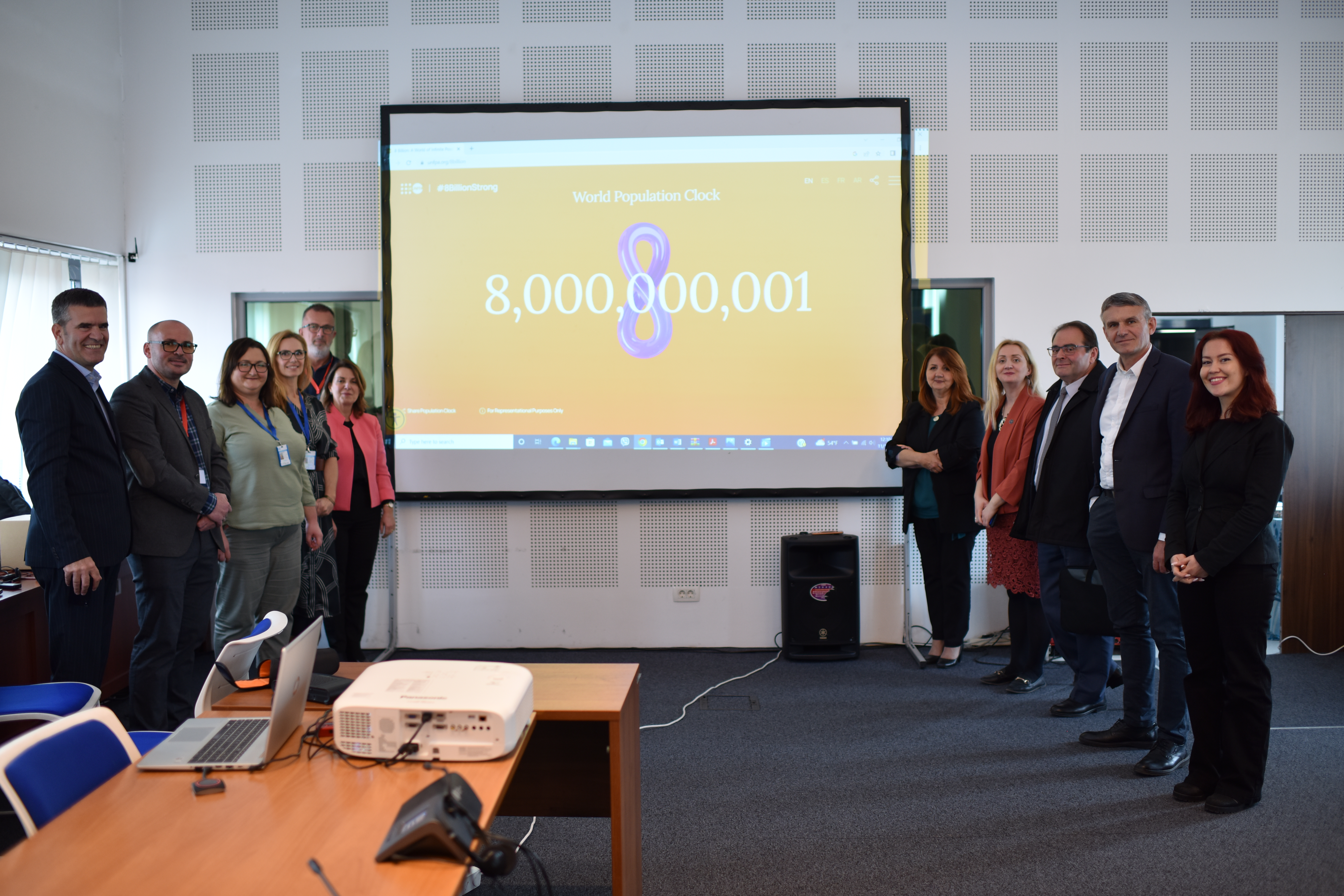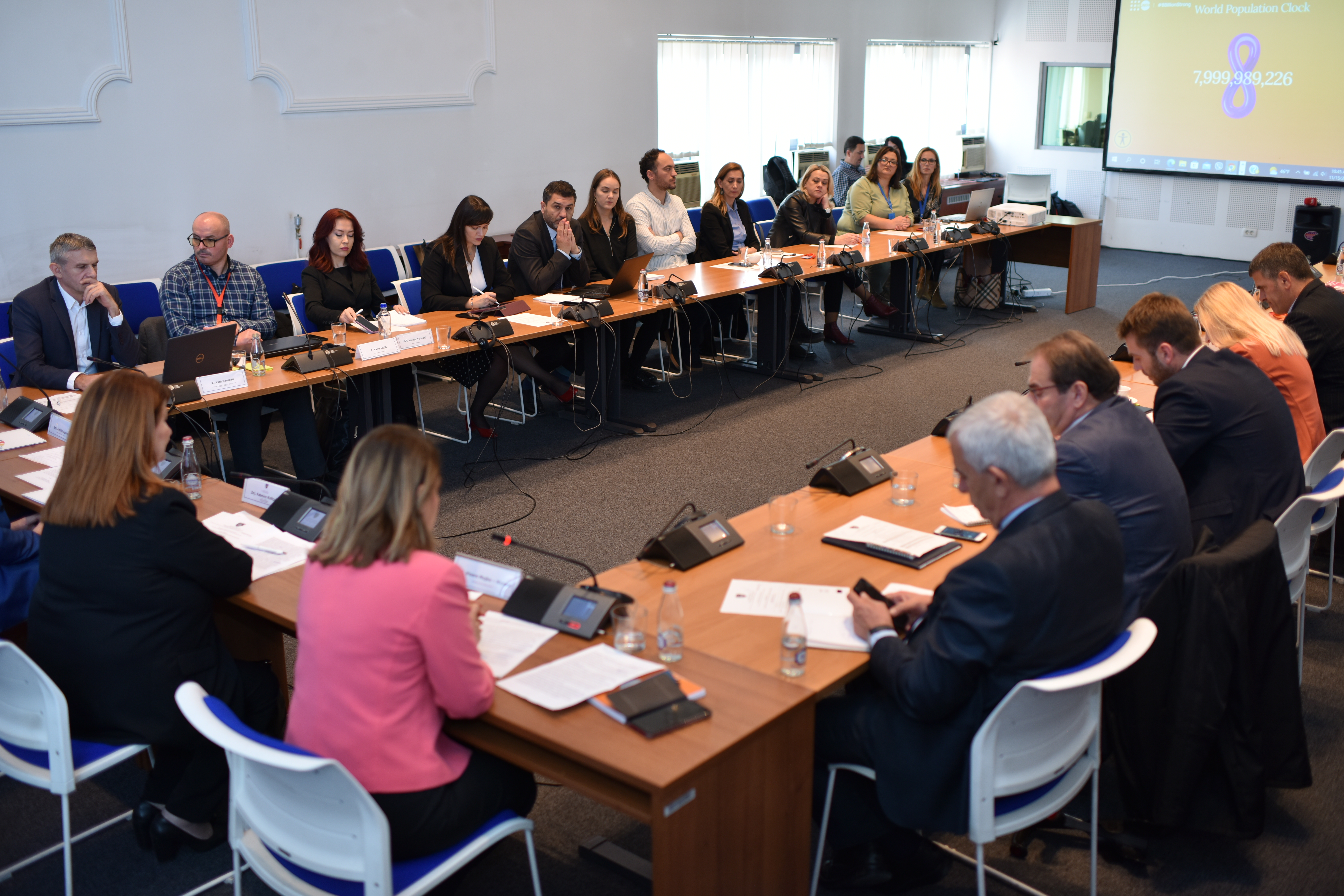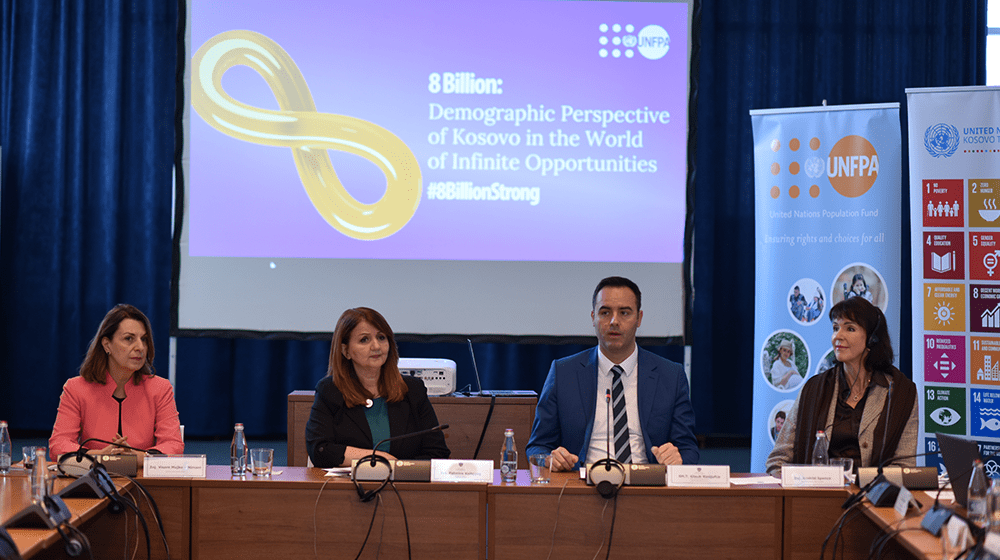The global celebration spearheaded by the United Nations and its population agency also had its Kosovo leg, with UNFPA and the Assembly of Kosovo Council for Sustainable Development holding a stakeholder roundtable on 15 November 2022 to reflect on demographic policies in Kosovo. Labelled as a World of Infinite Possibilities, the roundtable was an opportunity for institutional, civil society and international partners in Kosovo to reflect on demographic achievements of the past two decades, identify existing challenges and find ways to strengthen policy ideas for demographic resilience. The Council is the coordinating body of the Assembly of Kosovo with respect to the Sustainable Development Goals (SDGs) and this agenda was naturally the backdrop to the discussion. In particular SDGs 3,5, and 8 and their related objectives received central attention, given their direct relevance to the topic.

A central address of the event was that of the Assembly of Kosovo President, Glauk Konjufca. Mr. Konjufca outlined the diverse aspects of his institution and the institutional spectrum of Kosovo related to demographic resilience and social development. He stressed inter-agency cooperation and the need for further policy and legislative upgrades towards equality and inclusiveness, sustainable development and care for people and families in need. Mr Konjufca pointed out the Kosovo youth as a particular asset for development, but also one that needs attention given the trend of relative population reduction in Kosovo. A general and comprehensive national plan for demographic policies should be pursued, he concluded.

The chairperson of the Assembly Council for Sustainable Development, Fatmire Kollçaku, stated that inequality persists in the world and that the developed world has an obligation to support the underdeveloped. The UN Development Coordinator in Kosovo, Arnhild Spence, provided the key elements of the global demographic picture and best examples of demographic resilience pursued by the UN system across the world, as well as in Kosovo. Details in this regard were further provided by the UNFPA Head of Office, Visare Mujko-Nimani, who went through the numerous historical and current UNFPA efforts and programs strengthening institutional policies and social resilience in Kosovo. The participants had the opportunity to hear and discuss these matters also with the Kosovo Agency of Statistics representatives, academics, and representatives of the Kosovo Women’s Network, providing the much needed attention to the women’s perspectives of development, demographic policy and resilience.



